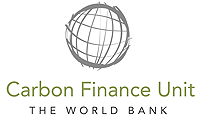Overview
The project activity involved production of high-quality compost from Municipal Solid Waste (MSW) by using advanced composting technology. The compost facility processes 1,500 tons of solid waste per day. The Project Proponent (PP), EarthCare Nigeria Limited (ENL) in collaboration with its technology partner EarthCare Technologies Inc (ECTI) has developed a world class composting facility in Lagos, Nigeria with an aim to provide environment friendly waste disposal option and produce high quality compost for use in Nigerian farms. Solid Waste Management sector in Nigeria is highly neglected and the common practice is to dump the waste in landfills. In the absence of the project activity, the MSW would have been diverted to ordinary unmanaged landfills, resulting in methane emissions due to development of anaerobic conditions. Methane is a potent greenhouse gas and its mitigation is major focus of global efforts in fighting the current climate change problem.
The project proponent has sought to rectify this situation by importing a highly successful technology that, in addition to treating waste, would also provide high quality compost to Nigerian farmers for use in agriculture and horticulture. The compost produced in the site is a proven grade A manure and was sold under the name of Compost Plus which is proven to improve the fertility and texture of the soil and to favor growth of friendly microorganisms that aid agriculture and resist disease causing bacteria. This manure is free from the adverse effects of chemical fertilizers like ground water contamination and is full of micronutrients that are absent in chemical fertilizers.
Benefits
The impact of the project activity on sustainable development of the area can be summarized in four categories:
- Social wellbeing: The use of excellent compost produced in the facility aided the Nigerian farmers in increasing productivity and helps the Nigerian government’s fight to achieve the goal of self-sufficiency in food production.
- Economic wellbeing: The project activity in its full-scale operation employed over 90 skilled and unskilled workers in the facility. Indirect employment was also generated in supporting functions of the project (drivers, garbage collectors, equipment providers etc.) also helping in the efforts to control unemployment. In addition, the business generated for service providers positively impacted the local economy. The success of this project activity meant more such projects coming up in future, generating more employment for the Nigerian population. The increased production due to the use of compost improved the profitability of the Nigerian farmers leading to a better economic outlook for the agriculture dependent. As economic and social issues are more or less interlinked, all such economic benefits brought on social benefits.
- Environmental wellbeing: This project activity has contributed to effective MSW management in Lagos region. Moreover, success of this project meant more investment in clean waste management technologies in the future, that brought significant improvement to MSW management scenario in the region. The project used aerobic treatment for biological waste to produce compost, thus avoiding the methane that would otherwise have been released to the atmosphere. Also, effective waste management practices meant less garbage in and around the city center leading to an improved hygiene and environment for the general population.
- Technological wellbeing: Although the technology employed in this project is state of the art and has already been proven in varied conditions in the US, China, Vietnam and Malaysia, it was a “first-of-its-kind” project in Nigeria. The successful implementation of this project has boosted investors’ confidence, bringing more investment to the neglected sector of solid waste management in Nigeria.
